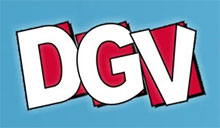Designing strategies are the procedural flow of the instructional planning following the components of The Integral ASIE Instructional Design Model.
The Integral ASIE Instructional Design Model has a dual function – (i) as an Instructional Planning Tool (ii) as a 21st Century Instructional Design Model.
As an Instructional Planning Tool it provides features that deal with the principles of lesson planning. The learning framework of The Four Dimensional Education, (Center for Curriculum Redesign, 2015, 2019) has been adapted and integrated in the model.
The Integral ASIE Instructional Design Model consists of 4 components with various aspects as shown below:
1. ANALYZE
Integrating – Knowledge
- Instructional profile—the instructional planning begins by identifying the instructional profile which refers to several customized items such as 21st Century Themes, subject, content standard, learning standard, performance standard, learning outcome, learning objectives and other related items.
- Learners’ profiles – describe learners’ readiness towards lesson
- Instructional media profile— types of media and and its integration in the learning process
2. STRATEGIZE
Developing – Skills
Skills are referred to the 21st century skills that are required in the teaching-learning process. They are as follows:
- Creativity
- Critical Thinking
- Communication
- Collaboration
Building – Character
To build character means to work on your personality, such your behavior or attitude. To make yourself better
- Mindfulness
- Curiosity
- Courage
- Resilience
- Ethics
- Leadership
Instilling – Meta-Learning
It refers to how we reflect and adapt (and Learn how to Learn)
- Metacognition
- Growth Mindset
3. IMPLEMENT
- Teachers may use MIW as an overall planning (macro level) to create an individual daily lesson plan (micro level) for classroom practices.
- Improvising may take place to ensure its appropriateness and effectiveness on the learners in the learning & teaching environment.
4. EVALUATE
The final component is the evaluation stage whereby responses from feedback are gathered to revise and evaluate the instructional planning strategies in the respective component and aspect of the model. It is a reflection process for future instructional redesigning opportunities.

